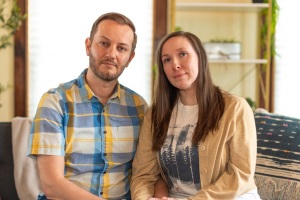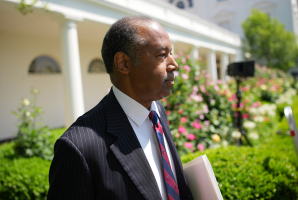Ariz. Church Fights Ban Against Meeting in Homes
A Christian legal group filed an appeal this week to fight a ban against a church meeting in homes.
With only seven members, Oasis of Truth Church was ordered to stop holding all activities, including Bible studies, leadership meetings and fellowship activities, in Pastor Joe Sutherland's home in Gilbert, Ariz.
Alliance Defense Fund attorneys contend in the appeal that was filed Wednesday that banning religious meetings of any size or frequency in a home is unprecedented and unconstitutional.
"Christian church groups shouldn't be singled out for discrimination and banned from meeting in their own homes," said ADF Litigation Counsel Daniel Blomberg. "The interpretation and enforcement of the town's code is clearly unconstitutional. It bans 200,000 Gilbert residents from meeting in their private homes for organized religious purposes – an activity encouraged in the Bible, practiced for thousands of years, and protected by the First Amendment."
Sutherland received a cease-and-desist letter in November after Inspector Steve Wallace discovered signs advertising church services in a residence. Wallace cited a zoning code that prohibits the use of single family residential structure for religious assemblies, small scale, and gave the church 10 days to cease such activities.
Notably, no complaints had been made from neighbors about the church meetings.
Oasis of Truth Church was launched in 2009 and consists of only seven adult members and four children. They were meeting in different houses on a rotating basis three times per week for fellowship, biblical and moral instruction and worship. Attendance never exceeded more than 10 adults and there was never more than one vehicle parked in the street by the people attending the church meetings. Other cars were parked in the home's driveway.
The church leaders did not intend to hold Sunday services at their homes permanently and hoped to move to a different location once the meetings got larger. But even so, meeting in homes was to remain an important part of the church's religious mission, the appeal states.
"The church leaders have a sincere religious belief that Christian fellowship is a necessary part of Christian life," ADF attorneys contend. "Such meetings follow the biblical example of the early Christian church."
Earlier this month, the church received a formal response from the zoning administrator who provided a specific interpretation of the zoning code in their case.
The Town's Land Development Code bans "religious assembly" from almost all residential structures. There is no provision for obtaining a conditional use permit to circumvent the rule. The zoning administrator has interpreted the ban to extend to any church-sponsored activities in private homes.
ADF attorneys are seeking to overturn the administrator's decision, arguing that "religious assembly" does not apply to the church's small-group religious meetings in homes. Moreover, the administrator's interpretation of the zoning code violates the church's First Amendment right to free exercise of religion, they add.
"Under First Amendment free speech jurisprudence, the church would have been able to hold its small meetings on the public sidewalk outside Pastor Sutherland's home without even having to ask the town's permission," the attorneys argue.
Oasis of Truth Church is currently holding Sunday services in a local school, but because of the cost of renting the space leaders have limited meetings to once a week.



























